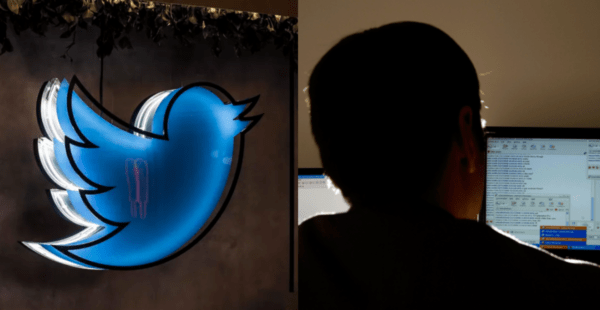
Twitter has been hit with yet another child porn scandal, with a new lawsuit claiming that they refused to take illegal content down because it didn’t “violate policies.”
The lawsuit, filed on Wednesday in a federal court in California, related to the case of a 17-year-old from Florida, only identified as John Doe, who when he was between 13 and 14, had sexual images and videos of him widely distributed on Twitter. Sex traffickers posing as a 16-year-old female classmate blackmailed him to share nude content.
After initially exchanging nude content, the victim was then forced to share more, otherwise the material would be shared with his “parents, coach, pastor,” and others, the traffickers threatened. Doe first complied under duress, the lawsuit notes, but then managed to block the traffickers. However, at some point in 2019, the child porn was then shared to Twitter from two accounts that were known to share this material.
The tweets were reported to Twitter at least three times, the suit alleges. Doe contacted Twitter and filed a report against the tweet when he became aware of it in January 2020, but Twitter claimed that they had “reviewed the content, and didn’t find a violation” of their policies, despite the illegal content reaching over 167,000 views on their site.
“What do you mean you don’t see a problem?” Doe replied to Twitter. “We both are minors right now and were minors at the time these videos were taken. We both were 13 years of age. We were baited, harassed, and threatened to take these videos that are now being posted without our permission. We did not authorize these videos AT ALL and they need to be taken down.”
It was only after an agent from the Department of Homeland Security contacted Twitter about the content did the Big Tech giant finally take down the accounts and child porn on January 30th, the suit notes. “This is directly in contrast to what their automated reply message and User Agreement state they will do to protect children,” the suit states.
While Twitter censors President Trump and his supporters en masse, they have a long history of allowing pedophiles and child molesters to speak freely. National File reported last January the disturbing truth that Twitter’s Terms of Service explicitly allow people to openly talk about child rape on their platform, despite claiming to have “zero tolerance towards any material that features or promotes child sexual exploitation”:
Discussions related to child sexual exploitation as a phenomenon or attraction towards minors are permitted, provided they don’t promote or glorify child sexual exploitation in any way. Artistic depictions of nude minors in a non-sexualized context or setting may be permitted in a limited number of scenarios e.g., works by internationally renowned artists that feature minors.
Twitter’s acceptance of pedophiles may have had something to do with a letter sent by a number of academics to John Starr, the director of Twitter’s Trust and Safety team in January 2018, claiming that they should be allowed to speak freely on their platform, unlike conservatives. The letter argued that removing them from the platform, and stopping them from talking about their sick fantasies, would only result in them going on to abuse children:
In our professional opinions, terminating the accounts of non-offending, anti-contact MAPs is likely to result in the opposite effect of that which Twitter may expect or intend. Rather than reducing the incidence of child sexual abuse, if anything, it increases the risk that some pedophiles will be unable to obtain the peer or professional support that they may need in order to avoid offending behavior. It is also likely to increase the stigma and isolation associated with pedophilia and thereby increase the likelihood of some MAPs acting on their sexual feelings.
Pedophiles, who now refer to themselves as the euphemistic “MAP” (Minor Attracted Person), are also openly selling child porn on Twitter, according to a report from May last year. As National File reported:
Sexually abusive content depicting minors is being sold for anywhere between $2-$10 USD. Some footage fetches up to $20 USD. The images are being traded on the major social media platform under seemingly innocuous code words such as “kiddie meals,” with a double-entendre for fast food combos, or “bagets,” meaning a “younger person.” Much of the footage reportedly shows the minors in explicitly sexual settings. Some accounts even sell “experiences” with minors on Twitter.
One account, that temporarily shut down for coronavirus social distancing, amassed nearly 1,500 followers. Rappler reported that accessing the depraved and illegal content simply required a direct message to the purveyor of this explicit product. Despite the illegality of distributing the content, several accounts in the Philippines continue to pawn this sickening material on social media where they can reach an international audience.